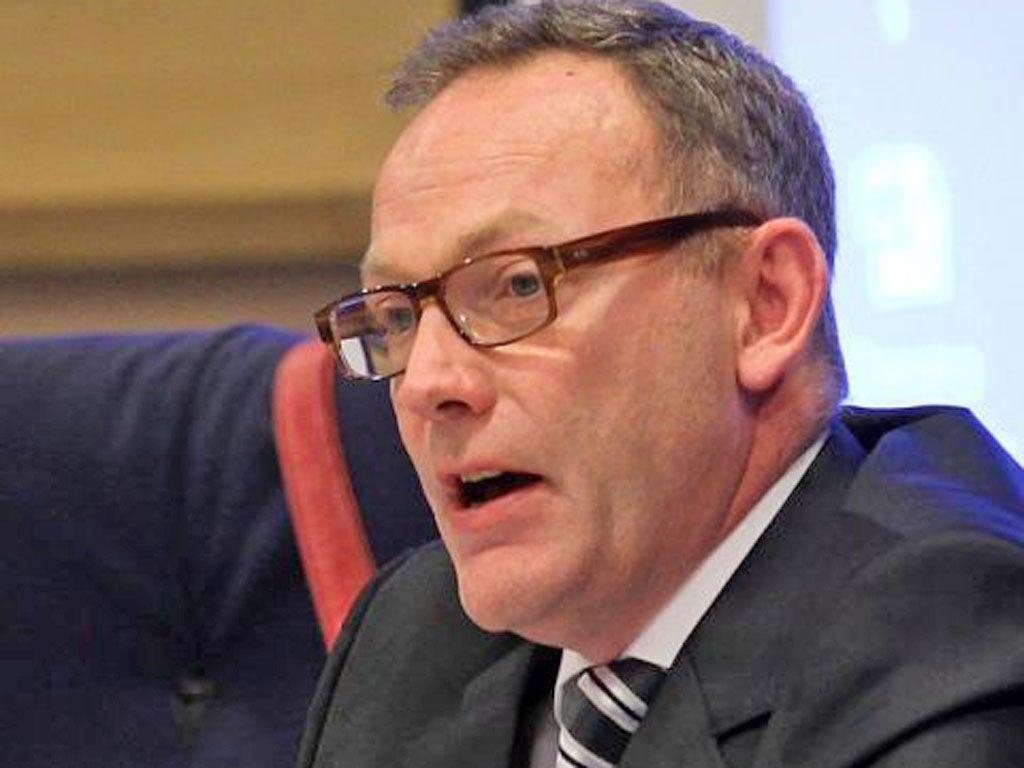The pacifist who keeps on fighting for human rights
Ben Emmerson, who defended Abu Qatada, is a divisive figure. He explains why to Terri Judd

Your support helps us to tell the story
From reproductive rights to climate change to Big Tech, The Independent is on the ground when the story is developing. Whether it's investigating the financials of Elon Musk's pro-Trump PAC or producing our latest documentary, 'The A Word', which shines a light on the American women fighting for reproductive rights, we know how important it is to parse out the facts from the messaging.
At such a critical moment in US history, we need reporters on the ground. Your donation allows us to keep sending journalists to speak to both sides of the story.
The Independent is trusted by Americans across the entire political spectrum. And unlike many other quality news outlets, we choose not to lock Americans out of our reporting and analysis with paywalls. We believe quality journalism should be available to everyone, paid for by those who can afford it.
Your support makes all the difference.To many within the legal profession he is a leading silk of "leviathan intellect", an "outstanding, clear leader in the human rights field". But Ben Emmerson QC, a man renowned for his liberal stance on human rights and his outspoken battle against the violence of torture, rendition and drones, is a divisive figure – the bête noire of the right-wing press and sections of the Tory party, forever tarnished for representing the radical cleric Abu Qatada almost 10 years ago in his fight against indefinite detention without trial.
Today, he is in a philosophical mood. "I abhor violence, but I have been driven over a lifetime of exposure to distinguish between dishonourable violence and the use of violence as a last resort in support of an honourable cause such as leading a liberation struggle without targeting civilians. Even though I am a pacifist by nature I understand that legitimate violence can sometimes be unavoidable."
Rarely out of the headlines in his successful courtroom battles, he was most recently the subject of much speculation over his failure to secure a post as successor to European Court of Human Rights (ECHR) President Sir Nicolas Bratza, despite being seen as the frontrunner. The leading QC, Lord Pannick, insisted there were "disturbing rumours" that he had been the victim of a right-wing campaign because of his human rights work against the Government.
And Tory MP Dominic Raab was quoted as saying: "If you're trying to rein in the human rights industry you don't appoint its equivalent of [union leader] Len McCluskey."
Mr Emmerson brushes aside the debacle, simply stating that he is "philosophical" and remains a great supporter of the European court.
He is, he explains, troubled by the fact that some politicians seem at loggerheads with the ECHR, which despite finding in Britain's favour in most cases, has rattled cages back home by defying the UK on such high-profile matters at Abu Qatada's deportation and the voting rights of prisoners.
"The European court has been, since its establishment, the most effective standard-setting institution for human rights in the world," he says, insisting that its €60m (£38.2m) budget needs to be boosted with its jurisdiction now covering 800 million people.
"It has become popular for UK Government ministers to make public attacks on the judiciary about decisions they don't like. Exaggerated attacks on the court's legitimacy have the capacity to undermine respect for rule of law.
"It is a frightening prospect. Attacks on the independence of the judiciary, once they begin, gain momentum and don't stop at an international level. The Supreme Court (the highest domestic court) still has the respect of the ordinary person in the street but it is a very short step from the type of gratuitous attack we have seen directed towards an international institution to a situation in which right-wing politicians and newspapers start pointing guns against the senior independent judiciary of England and Wales."
For now, however, Mr Emmerson is intent on talking about his work as UN Special Rapporteur on Human Rights and Counter-Terrorism. His latest report to the UN promoted the cause of victims including the right to transparent, impartial investigation, to be consulted and compensated.
"There are 19 international instruments dealing with counter-terrorist co-operation but not a single global treaty dealing with victims," he says.
He sees no clash of interests between fighting for fair trials for terror suspects as well as opposing secret or indefinite detention and promoting the cause of the innocents caught up in the bloodshed.
"I worked closely with victims' organisations in preparing that report. And I can tell you that they are not calling for more torture or human rights violations in the name of counter-terrorism," he explains.
"There has been a terrible polarisation between the human rights lobby on one side and the men and women who plan counter-terrorism strategies on the other. The people who devise strategies that involve human rights abuse honestly believe they are taking action designed to protect the lives of victims of terrorism.
"We need to expose that myth. Far from protecting the next generation of victims they are exposing them to more terrorism because the strategies are a clarion call for terrorist recruitment."
It is time, he explains, for a sea change. Terrorism will not be defeated by security measures alone, there is a need to tackle not only the manifestations but the causes.
"I am not suggesting in the duration of my mandate I will change the world but I do have an opportunity to change the dialogue," he added.
Join our commenting forum
Join thought-provoking conversations, follow other Independent readers and see their replies
Comments